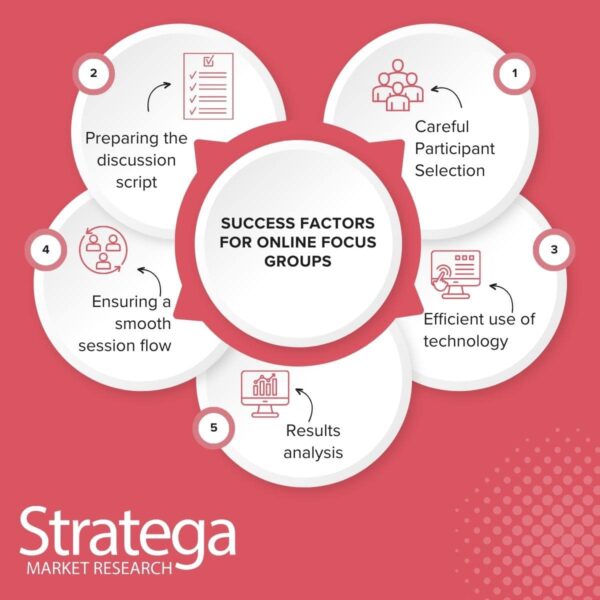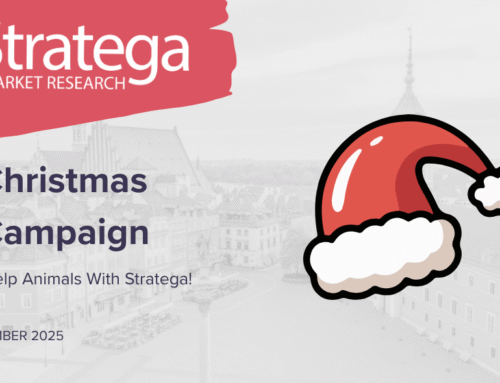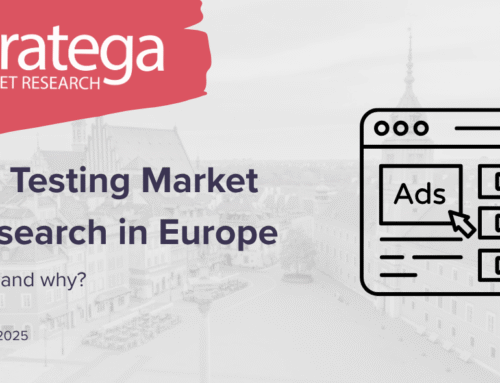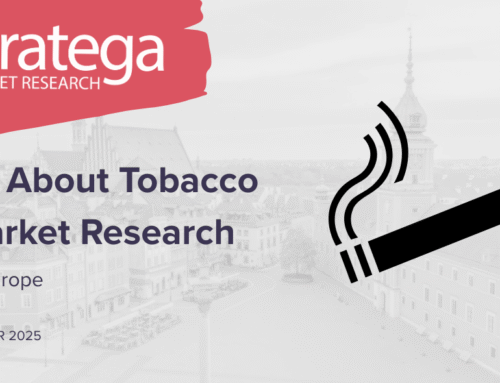In the ever-evolving landscape of market research, online focus groups have emerged as a powerful tool for gathering valuable consumer insights and a method of collecting qualitative data. With their convenience, cost-effectiveness, and ability to reach a diverse range of participants, digital focus groups have gained popularity among market research agencies in Poland. This comprehensive guide aims to shed light on the art of conducting paid online focus groups and expands on focus group methods, including the benefits they offer and best practices for successful implementation.
What are Online Focus Groups?
They are a form of qualitative research where a selected group of participants engages in a discussion facilitated by a moderator conducting focus groups. Unlike traditional in person groups, online groups take place in a virtual setting, enabling participants from various locations to contribute their opinions, experiences and answer focus group questions.
Benefits:
Geographic Reach:
One of the significant advantages of a online focus group is the ability to engage focus group participants from different regions of Poland in group discussion. This broader geographic reach ensures diverse perspectives of focus group members on a particular topic and a detailed focus group interview, resulting in more representative sample.
Cost-Effectiveness:
Conducting a focus group online eliminates the need for travel, venue rentals, and other associated expenses, making it a cost-effective solution for market research agencies. Additionally, there are various online platforms available as focus group setting, that offer affordable packages for hosting virtual discussions enabling group interaction.
Convenience and Flexibility:
A networked focus group provides convenience and flexibility for both participants and researchers. Participants can join sessions from the comfort of their homes or offices, eliminating the need for travel time and potential scheduling conflicts. For researchers, it allows for easier scheduling, recording, analysis of data and a thorough focus group research.
Best Practices for Successful Paid Online Focus Groups:
Careful Participant Selection:
Selecting the right research participants is crucial to the success of a online focus group. Ensure that the chosen individuals align with the research objectives and possess the desired characteristics, demographics, and experiences that will provide meaningful insights necessary to collect qualitative data.
Engaging Moderation:
Skilled moderators play a pivotal role in guiding the discussion and encouraging participants to share their thoughts openly. In order to properly conduct focus groups, moderators should possess excellent communication skills, actively manage the conversation, and ensure that each focus group participant has an equal opportunity to contribute.
Utilize Effective Technology:
Choosing the right online platform is vital for smooth facilitation of such groups. Look for platforms that offer features like real-time video and audio capabilities, chat functionalities, and screen-sharing options. Test the platform in advance to ensure seamless connectivity and minimize technical glitches.
Clear Instructions and Stimuli are crucial for paid online focus groups:
Provide clear instructions to participants prior to the online session. Share any relevant materials or stimuli to help participants understand the research objectives and foster meaningful online discussions in order to collect data. This could include visual aids, product samples, or pre-session questionnaires used for a more detailed focus group research.
Preparing the discussion script:
The moderator must prepare a discussion script that guides participants through the research topics. It is crucial for the questions to be open-ended and create an atmosphere that encourages participants to freely share their opinions.
Ensuring a smooth session flow:
The moderator must ensure a smooth flow of discussion to allow every participant the opportunity to express themselves. To achieve a smooth flow of discussion, the moderator should actively listen to participants, ask follow-up questions, and gracefully steer the conversation back on track if it digresses from the main research topics.
Results analysis:
After the sessions are concluded, it is essential to thoroughly analyze the collected data, draw conclusions, and provide recommendations for further actions. In addition to quantitative data analysis, the moderator should pay close attention to qualitative insights and thematic patterns that emerged during the discussions, as they can provide valuable context and enrich the overall findings.
Paid Online Focus Groups:
In certain cases, market research agencies opt for a paid digital focus group to incentivize participation. Offering monetary compensation or other rewards can attract a larger pool of potential participants, enhancing the representativeness of the sample and increasing engagement levels, therefore recruiting participants is an important element of the procedure. However, it is crucial to establish clear guidelines for compensation and ensure transparency throughout the process.
In conclusion, online focus groups have emerged as a valuable tool for agencies conducting marketing research in Poland. Their geographic reach, cost-effectiveness, and convenience make them an attractive option for gathering consumer insights. By following best practices and utilizing effective technology, agencies can maximize the potential of such groups to uncover valuable data collected from the social research, that informs strategic decision-making. Whether it’s for product development, brand perception, or market trends, mastering the art of online focus groups opens up a world of possibilities for in-depth consumer understanding.





